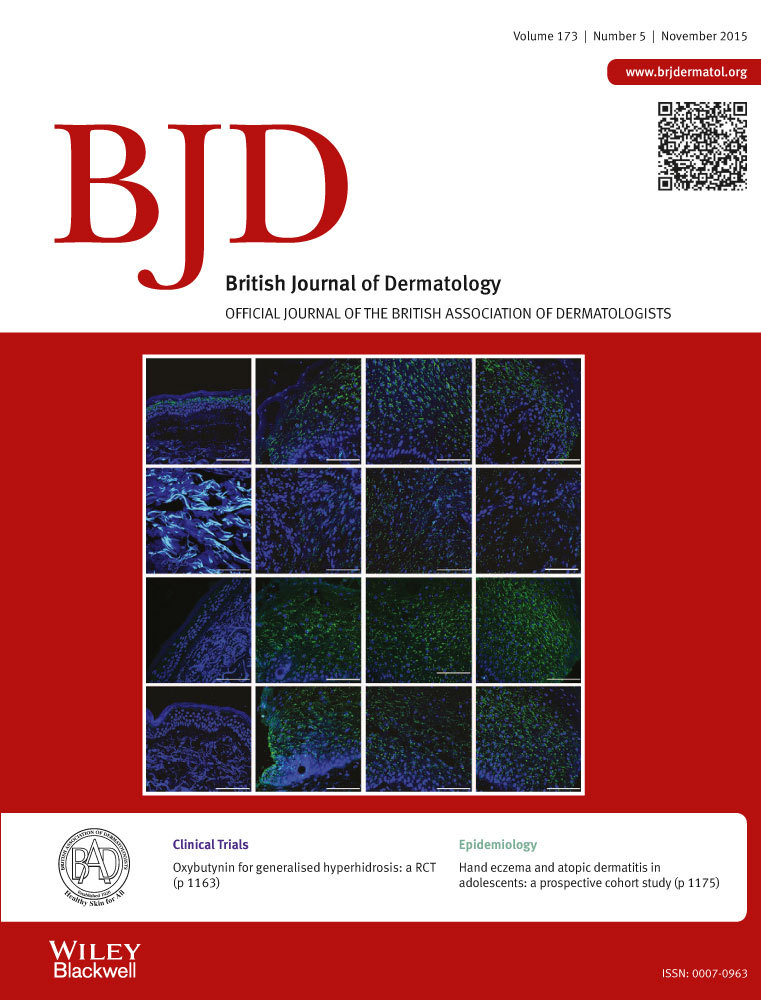Oxybutynin as a treatment for generalized hyperhidrosis: a randomized, placebo-controlled trial
Summary
Background
Hyperhidrosis is a disorder that can impair quality of life. Localized treatments may be cumbersome and ineffective, and no systemic treatments have proven to be significantly beneficial.
Objectives
To evaluate the effectiveness and tolerance of low-dose oxybutynin for hyperhidrosis.
Methods
We conducted a prospective, randomized, placebo-controlled trial. From June 2013 to January 2014, 62 patients with localized or generalized hyperhidrosis were enrolled. Oxybutynin was started at a dose of 2·5 mg per day and increased gradually to 7·5 mg per day. The primary outcome was defined as improvement of at least one point on the Hyperhidrosis Disease Severity Scale (HDSS). Dermatology Life Quality Index (DLQI) and tolerance were also reported.
Results
Most patients (83%) in our study had generalized hyperhidrosis. Oxybutynin was superior to placebo in improving the HDSS: 60% of patients treated with oxybutynin, compared with 27% of patients treated with placebo, improved at least one point on the HDSS (P = 0·009). The mean improvement in quality of life measured by DLQI was significantly better in the oxybutynin arm (6·9) than in the placebo arm (2·3). The most frequent side-effect was dry mouth, which was observed in 43% of the patients in the oxybutynin arm, compared with 11% in the placebo arm.
Conclusions
Treatment with low-dose oxybutynin is effective in reducing symptoms of hyperhidrosis in generalized or localized forms. Side-effects were frequent but minor and mainly involved dry mouth.




